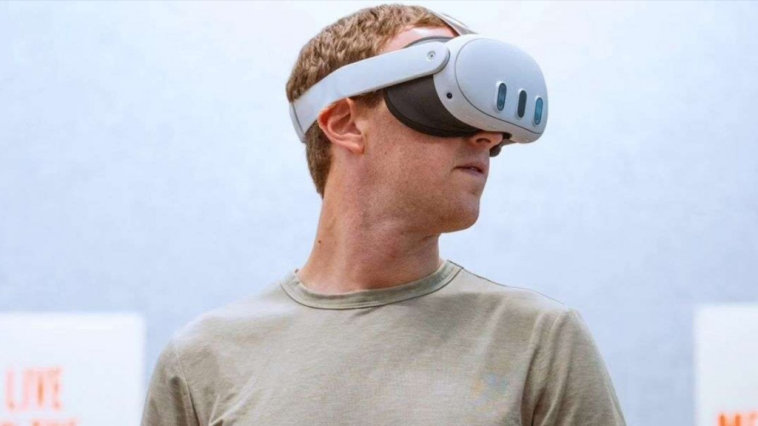During a companywide meeting, Meta CEO Mark Zuckerberg shared his thoughts on the newly unveiled Apple Vision Pro. In a surprising turn of events, Zuckerberg claimed that Apple’s latest VR headset offers no groundbreaking technological advancements that Meta hasn’t already explored. Moreover, he emphasized that Meta’s upcoming Quest 3 headset would be more accessible to a broader user base.
Examining how companies compete with each other provides valuable insights into their customer-oriented strategies. By analyzing Zuckerberg’s comments on the Apple Vision Pro, we can determine whether to consider purchasing the Meta Quest 3 or Apple’s VR headset. This discussion will undoubtedly pique the interest of tech enthusiasts.
Zuckerberg expressed that the Apple Vision Pro is significantly more expensive than the Quest 3 but fails to provide superior features. Furthermore, he provided insight into Meta’s long-term goals for its VR headset by referencing Apple’s tech demonstration.
“Their announcement really showcases the difference in values and vision that our companies bring to this, which I think is crucial,” stated the Meta CEO. He further elaborated on his company’s VR headset, emphasizing its focus on “people interacting in new ways and feeling closer while being active and doing things.”
Zuckerberg contrasted Apple’s approach by highlighting that their demos primarily featured individuals sitting alone on a couch. While acknowledging that this may be one vision of future computing, he emphasized that it was not the vision he desired. He went on to say, “From what I’ve seen initially, I’d say the good news is that there are no magical solutions they have to any of the constraints on laws of physics that our teams haven’t already explored and thought of.”
Crucially, Zuckerberg emphasized the fundamental social nature of Meta’s vision for the metaverse and presence. Their goal is to enable people to interact and feel closer to one another through new and innovative means. He expressed his excitement and optimism for their unique approach, viewing Apple’s entry into the market as further validation that Meta’s endeavors will succeed. He concluded by saying, “It’s going to be a fun journey.”
Apple envisions the Vision Pro as a “spatial computer” that seamlessly integrates your physical surroundings into the digital interface. Designed for daily use, especially in workplaces, this VR headset allows you to connect your Magic Keyboard and Trackpad to create a VR workspace wherever and whenever you need it. Similar to other VR devices, it projects apps in front of you, but the difference lies in how these apps appear to hover around you rather than being locked to your face. Navigation is achieved by turning your head and tapping on the apps.
The Vision Pro also immerses you in ultra-realistic environments and offers the option to view panorama shots that transport you into captured moments. Moreover, the visor incorporates a feature that allows you to be aware of nearby people by detecting their presence, enhancing your spatial awareness. Additionally, the glass projects your eyes, conveying to others that you are conscious of their presence.
As Zuckerberg asserted, the Meta Quest 3 prioritizes bringing people together and focuses on VR games that can be enjoyed with friends and family. One significant advantage that the Quest has over the Apple Vision Pro is its extensive library of existing games, providing users with a wide range of virtual reality experiences. In contrast, the Vision Pro announcement merely mentioned the inclusion of older Apple Arcade games.
In conclusion, Mark Zuckerberg was unimpressed by Apple’s Vision Pro announcement, asserting that it fails to introduce any features that Meta hasn’t already considered for the Quest 3. However, the decision of whether to opt for the Meta Quest 3 or the Apple Vision Pro ultimately lies with the consumers. The former is priced at $299.99 for the 128GB version and $349.99 for the 256GB variant, while the upcoming Apple headset comes

